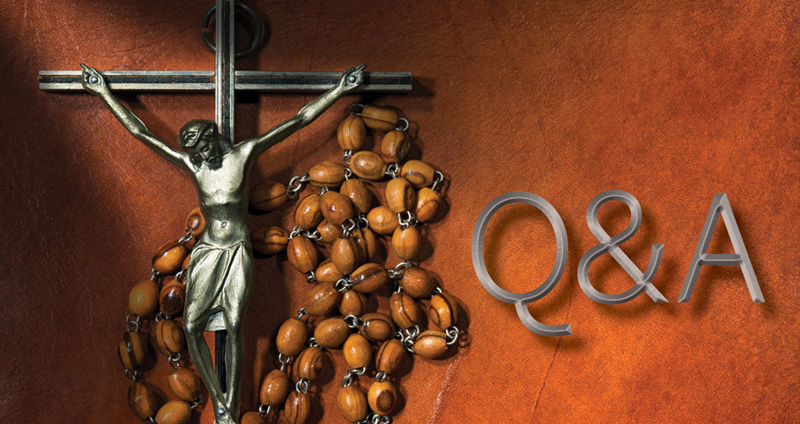
Q: Were any of the Apostles married? If so, what happened to their families? (Hilton Head, SC)
A: This is a great question that involves a lot of history and spiritual speculation. In going through some of these sources, we should be careful not to jump to false applications to the life of the Church today. For example, if the Apostles were married, then priests should be married today. And so, let’s dive into the answer to your question.
It appears that all of the Apostles, except for the young St. John, were married when the Lord Jesus called them to Himself. For example, we know that Peter was married because Jesus healed his mother-in-law (Mt 8:14). Since celibacy was rare in Judaism, it shouldn’t surprise us that the Lord called married men. Honestly, in His day, the Lord would have been hard pressed to find unmarried grown men.
With this acknowledgement, it has been held that the married Apostles were celibate during their ministry with Jesus and then permanently after Pentecost. This assertion is made because the Apostles were so radically changed by the coming of the Holy Spirit that they were called to imitate the Lord Jesus in His own singularity of mission and, by extension, in His celibacy for the sake of the kingdom (cf. Acts 2:1-4; Mt 19:12).
This could explain why we have no reference to spouses or families of the Apostles in the Gospels or in the Acts of the Apostles.
It is possible that some of the Apostles cared for the temporal needs of their wives and families while being away from them. The other possibility is that the wives of the Apostles were with them during their ministry but as “adelphen gunaika,” which is Greek for “sister wife” (cf. 1 Cor 9:5). The implication is that, while with their wives, the Apostles would have remained celibate. In some areas of the Church, this practice continued and some bishops married “sister wives” (cf 1 Tim 3:2-5).
St. Paul, who is a later Apostle, speaks highly of celibacy in terms of total and devoted service to God and the Church (cf. 1 Cor 7:32).
In giving this history, I want to stress the proper focus. It is not that sexual activity itself somehow diminishes our holiness. In fact, to those who are called to the married state, sexual expression can actually help them grow in holiness. The emphasis is the imitation of the Lord Jesus and to His complete and unconditional dedication to His mission and to the kingdom of God. This is what the Apostles were responding to and why celibacy is praised in the life of the Church.
Q: In a previous answer you gave in reference to the sacramental ordination of women, you seem to imply that the matter of the sacrament is the male candidate rather than the laying on of hands by the bishop on such male candidates. Could you please clarify? (Simpsonville, SC)
A: Yes, the matter of the sacrament of Holy Orders is the laying on of hands of male baptized members of the Church. I stressed the second part in light of the question I was answering. I agree that, more holistically, it’s appropriate to stress the laying on of hands, which is a sacramental sign denoting the descent of the Holy Spirit.
Father Jeffrey Kirby is administrator of Our Lady of Grace Church in Lancaster. Email him your questions at askfrkirby@gmail.com.


